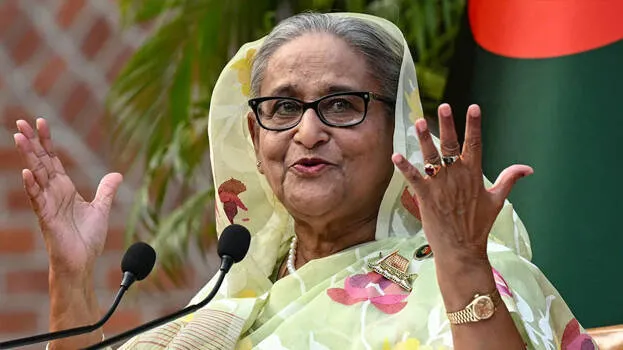

DHAKA: Former Bangladeshi Prime Minister Sheikh Hasina (78), who fled to India after resigning from power following anti-government protests, has been sentenced to death by a court in her own country. Hasina, who has been the Prime Minister of Bangladesh five times and has earned the reputation of being the most powerful female Prime Minister in South Asia, responded in India that she is not taking the verdict seriously.
Although there are calls in Bangladesh for Hasina to be extradited, India is unlikely to budge. India's response is that it will intervene constructively. Even though an extradition treaty has been signed, the India-Bangladesh treaty, Article 6 states that extradition may be refused if the offence is of a "political nature". This provision in the treaty, signed while Hasina was the Prime Minister, has become her own security shield.
The case is based on the fact that around 1,400 people were killed when the government tried to suppress with an iron fist the protests started by youth and students against job reservations and corruption. Hasina was tried en masse and sentenced to death on more than 200 cases, including murder, sedition and rioting. Murder was charged in 179 cases.
The International Crimes Tribunal (ICT) in Dhaka sentenced former Home Minister Asaduzzaman Khan Kamal to death for committing "crimes against humanity". It is not clear where Khan is after leaving Bangladesh. The former police chief was sentenced to five years in prison.
The verdict says that Hasina ordered the use of drones to track protesters and the use of helicopters and lethal weapons to kill them. With Hasina out, an interim government led by Nobel Peace Prize winner Muhammad Yunus is in power. The verdict comes just before the general elections are due in February. Hasina's son Sajid said that she will not appeal in the country until a democratic government comes to power. Hasina's lawyers have approached the UN.
Seeking asylum in India
Hasina against the verdict